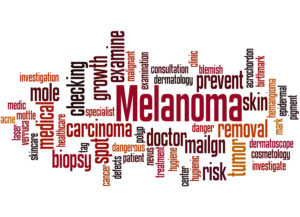Does Smoking Make Melanoma Worse?

Home Care Bensalem PA: Does Smoking Make Melanoma Worse?
Melanoma is a form of skin cancer that occurs in the cells, called melanocytes, that make melanin. Melanin is what gives skin its color. When a person develops melanoma skin cancer, the melanocytes grow out of control and don’t die off when they should. These abnormal cells form a tumor. According to the American Cancer Society, over 96,000 people in the United States are expected to be diagnosed with melanoma this year. Sadly, 7,230 people will die because of it. When melanoma is diagnosed early, the chances of successful treatment are better. However, a new study indicates that smoking can reduce the chances of a good outcome.
Smoking and Melanoma Study
The study took place in the United Kingdom and involved more than 700 people with melanoma. The results of the study showed that people who didn’t smoke or who hadn’t smoked in the past 10 years or more had a 60 percent higher chance of surviving melanoma. The researchers believe that smoking impedes the immune system, making it less capable of fighting cancer.
Melanoma Risk Factors
Doctors don’t know exactly what makes a person develop melanoma, but they have identified some risk factors that increase the chances, such as:
- Light Skin: People who have light-colored skin are at an increased risk of getting melanoma because they don’t have as much of the melanin that protects skin from damage from the sun’s rays.
- Severe Sunburn: Having had a severe sunburn in the past increases the risk.
- Too Much Exposure to UV Light: Spending too much time in the sun or in tanning beds makes melanoma more likely.
- Lots of Moles: Having 50 or more normal moles or having unusual moles, with uneven borders or that are large, is a risk factor.
- Weakened Immune System: Individuals who have weak immune systems may develop melanoma more easily.
Senior Care Can Help Prevent Melanoma
If your aging relative is at risk for melanoma, senior care can help them to prevent it. Senior care providers can remind older adults to use sunscreen and help them to apply it. The Mayo Clinic recommends that people wear sunscreen even during winter months when the sun’s rays can reflect off snow, making it even brighter. They also recommend that people check their skin regularly for changes in moles or for new moles or growths. A professional exam should be conducted yearly. Senior care providers can help older adults to check their skin and drive them to medical appointments for professional skin checks.
Sources
https://www.webmd.com/melanoma-skin-cancer/news/20190225/smokers-may-fare-worse-vs-deadliest-skin-cancer
https://www.cancer.org/cancer/melanoma-skin-cancer/about/what-is-melanoma.html
https://www.mayoclinic.org/diseases-conditions/melanoma/symptoms-causes/syc-20374884
https://www.cancer.org/cancer/melanoma-skin-cancer/about/key-statistics.html
- Is Your Senior Missing More Choices than You Think? - April 23, 2020
- Do You Need to Help Care for Your Elderly Loved One? - April 13, 2020
- Brain Enrichment Ideas for Your Elderly Loved One - March 23, 2020

